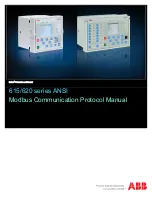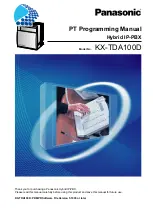
GENERAL ENGINEERING DATA
ENGINEERING MANUAL OF AUTOMATIC CONTROL
475
VOLTAGE CONVERSION
Table 19. Voltage Conversion Multipliers.
Desired Voltage
Existing Voltage
EMS Effective
Average
Peak
Peak-to-Peak
EMS Effective
—
0.900
1.414
2.828
Average
1.110
—
1.570
3.141
Peak
0.707
0.637
—
2.000
Peak-to-Peak
0.354
0.318
0.500
—
ELECTRIC MOTORS
Single-phase electric motors are classified by the method used
to start the motor. Table 18 describes the characteristics and
typical applications of single-phase motors by classification.
No special means of starting is required for three-phase motors,
since starting (rotational) torque is inherent in three-phase
motors. A three-phase motor can be reversed by switching any
two phases.
Table 18. Single-Phase Motor Characteristics and Applications.
Motors have two current ratings locked rotor (LRA) and full
load (FLA). Locked rotor current is drawn at the instant power
is applied and before the motor starts rotating. It is also drawn
if the motor is stalled. Full load current is drawn when the motor
is running at its full load rating.
Motor Type
Characteristics
Application
Universal
(Series)
Armature and field connected in series. Operates on dc or
ac with approximately the same speed and torque.
Where either ac or dc may be available. Used for
portable tools, vacuum cleaners, electric
typewriters, etc.
Split-Phase
Starting
Uses a pair of field windings for starting with one winding
slightly lagging. One winding is disconnected by a
centrifugal switch when running speed is reached.
Where starting torque and varying load are not
excessive. Used for oil burners, washing
machines, grinding wheels, etc.
Capacitor
Starting
Same as split-phase with a capacitor connected to the
winding that stays on line. Provides greater starting torque
with high efficiency and power factor.
Where high starting torque and heavy varying
loads exist. Used for air conditioners,
refrigerators, air compressors, etc.
Shaded-Pole
Starting
A short-circuited winding is used on each pole piece along
with a normal winding. Magnetic flux in the shorted turn
produces starting torque. Torque is low.
Where starting torque is low and less than 1/20
horsepower is required. Used for electric clocks.
Repulsion
Starting
Operates as a repulsion motor on starting and a centrifugal
switch converts it to an induction motor when running speed
is reached. Motor has a commutator as in a dc motor.
Provides high starting torque.
Where high starting torque is required. Used in
machine shops.
Summary of Contents for AUTOMATIC CONTROL SI Edition
Page 1: ...AUTOMATIC CONTROL for ENGINEERING MANUAL of COMMERCIAL BUILDINGS SI Edition ...
Page 4: ...ENGINEERING MANUAL OF AUTOMATIC CONTROL iv ...
Page 6: ...ENGINEERING MANUAL OF AUTOMATIC CONTROL vi ...
Page 46: ...ENGINEERING MANUAL OF AUTOMATIC CONTROL CONTROL FUNDAMENTALS 36 ...
Page 66: ...ENGINEERING MANUAL OF AUTOMATIC CONTROL PSYCHROMETRIC CHART FUNDAMENTALS 56 ...
Page 128: ...ENGINEERING MANUAL OF AUTOMATIC CONTROL ELECTRIC CONTROL FUNDAMENTALS 118 ...
Page 158: ...MICROPROCESSOR BASED DDC FUNDAMENTALS 148 ENGINEERING MANUAL OF AUTOMATIC CONTROL ...
Page 208: ...ENGINEERING MANUAL OF AUTOMATIC CONTROL BUILDING MANAGEMENT SYSTEM FUNDAMENTALS 198 ...
Page 493: ...INDEX ENGINEERING MANUAL OF AUTOMATIC CONTROL 483 INDEX ...
Page 506: ...ENGINEERING MANUAL OF AUTOMATIC CONTROL INDEX 496 NOTES ...
Page 507: ...INDEX ENGINEERING MANUAL OF AUTOMATIC CONTROL 497 NOTES ...
Page 508: ...ENGINEERING MANUAL OF AUTOMATIC CONTROL INDEX 498 NOTES ...
Page 509: ...INDEX ENGINEERING MANUAL OF AUTOMATIC CONTROL 499 NOTES ...
Page 510: ...ENGINEERING MANUAL OF AUTOMATIC CONTROL INDEX 500 NOTES ...
Page 511: ...INDEX ENGINEERING MANUAL OF AUTOMATIC CONTROL 501 NOTES ...
Page 512: ...ENGINEERING MANUAL OF AUTOMATIC CONTROL INDEX 502 NOTES ...
















































